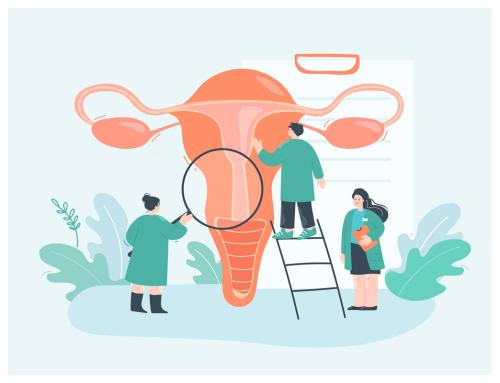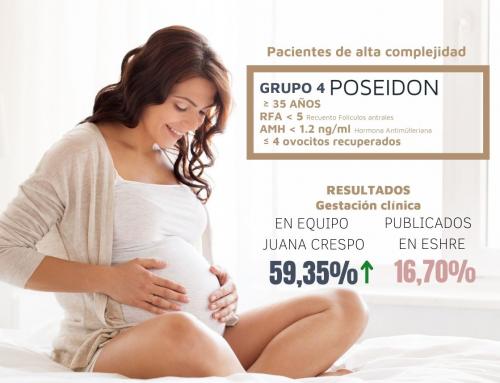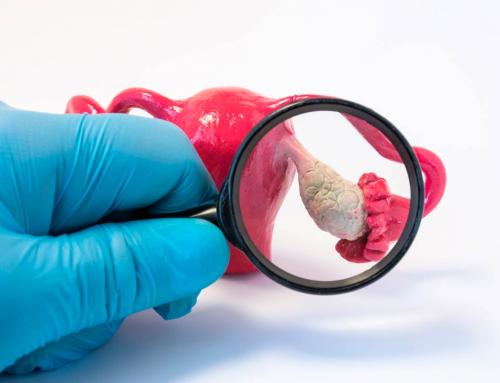According to data from the Spanish Society of Endocrinology and Nutrition, about 10% of Spanish women suffer from thyroid disorders. The most common is hypothyroidism.
Women suffering from hypothyroidism usually have fertility problems, as this disease affects egg production and the menstrual cycle.
Therefore, when a woman fails to become pregnant, it is common to evaluate her thyroid function and check her hormone levels.
On the other hand, hypothyroidism usually has an autoimmune cause, with the immune system’s own antibodies attacking the thyroid and altering its function. Hence there is an association between thyroid disorders and pregnancy complications, especially 1st trimester miscarriages.
What is hypothyroidism?
Some pathologies can affect the functioning of the thyroid, causing an excessive or insufficient production of hormones.
Hypothyroidism is a disease that causes the thyroid gland to be underactive.
This means that the thyroid produces fewer hormones than the body needs to perform its functions “normally”.
Hypothyroidism is a condition present in both men and women.
Depending on the triggering factor, it can be primary (a failure of the thyroid itself) or secondary (a disturbance in the pituitary gland).
There is also another type of hypothyroidism, called peripheral or tertiary, much less frequent, related to the inability of tissues to respond to thyroid hormones.
The thyroid: a key gland for fertility and for the “normal” functioning of the organism.
The thyroid is an endocrine gland located in the front of the neck.
It is shaped like a butterfly and its function is to produce, store and release thyroid hormones, known as T3 (triiodothyronine) and T4 (thyroxine), the basic compound of which is thyroxine.
These hormones are involved in the development of the nervous system and regulate metabolism, being fundamental in physiological processes such as controlling heart rate, synthesizing glycogen, forming vitamin A, regulating calorie consumption, maintaining body temperature or producing reproductive cells.
To perform these functions, the thyroid is assisted by two other glands: the pituitary, which is responsible for identifying the amount of thyroid hormones in the blood to produce more when necessary (through the secretion of TSH); and the hypothalamus, which releases TRH so that the pituitary gland can produce TSH.
Are there risk factors associated with this disease?
Hypothyroidism can affect people of all ages and genders, although it is more common in women of childbearing age (between 15 and 45 years).
It is most often caused by Hashimoto’s thyroiditis, an autoimmune disease present in 4 out of every 1,000 women and 1 out of every 1,000 men.
Some of the factors that increase the risk of hypothyroidism are:
- Presence of other autoimmune diseases, such as diabetes, lupus or rheumatoid arthritis.
- Radiotherapy treatments to the chest and neck.
- Thyroid surgery.
- Genetic and chromosomal alterations, such as Turner syndrome and Down syndrome.
- Some medications.
Regarding its symptoms, they are not particularly striking (constipation, dry skin, increased body weight, swollen hands and feet, heavy menstruation, decreased libido, joint or muscle pain, etc.).
In fact, the diagnosis of hypothyroidism is made with a blood test, where, in addition to altered hormonal values, an elevated amount of cholesterol in the blood is usually common.
Once the disease has been diagnosed, the treatment is simple: medication is administered (usually thyroxine), the dose of which is established and controlled periodically by the specialist physician.
➔ You may be interested in: How being overweight affects your fertility
Hypothyroidism, fertility and pregnancy
The reproductive system, both male and female, needs a sufficient amount of thyroid hormones to function properly.
When a couple has problems getting pregnant, one of the first steps is to check their blood hormone values.
This is very important because a deficit of hormones can alter physiological processes related to egg and sperm production.
Hypothyroidism and female fertility
The relationship between hypothyroidism and female fertility is clear: this gland interacts with female sex hormones (estrogens and progesterone) to ensure the proper functioning of the ovaries and the maturation of eggs.
A low level of thyroid hormones can cause ovulation disturbances, anovulation or irregular menstrual cycles due to a decompensation of the FSH and LH hormones (responsible for controlling the ovulatory cycle) and interfere with the release of eggs.
Thyroid dysfunction is also associated with complications during pregnancy such as miscarriages (the risk percentage in patients with hypothyroidism is multiplied by four), hypertension, premature delivery, fetal growth restrictions or placental abruption.
Hypothyroidism and male fertility
Although less common in men (about 1%), hypothyroidism also negatively affects male fertility, altering semen quantity and quality.
A low amount of thyroid hormones in the male is related to problems in the production and maturation of spermatozoa, teratozoospermia (seminal alteration with a high number of spermatozoa with abnormal forms), decreased ejaculate and decreased libido and sexual desire.
Hypothyroid women have high rates of infertility, higher risk of failure in in vitro fertilization (IVF) cycles and higher risk of pregnancy complications.
Therefore, the rapid diagnosis of the disease, monitoring the thyroid glands and keeping hormone levels under control is essential in assisted reproduction treatments.
In Juana Crespo we take care of your reproductive health. If you have any questions, call us.
















